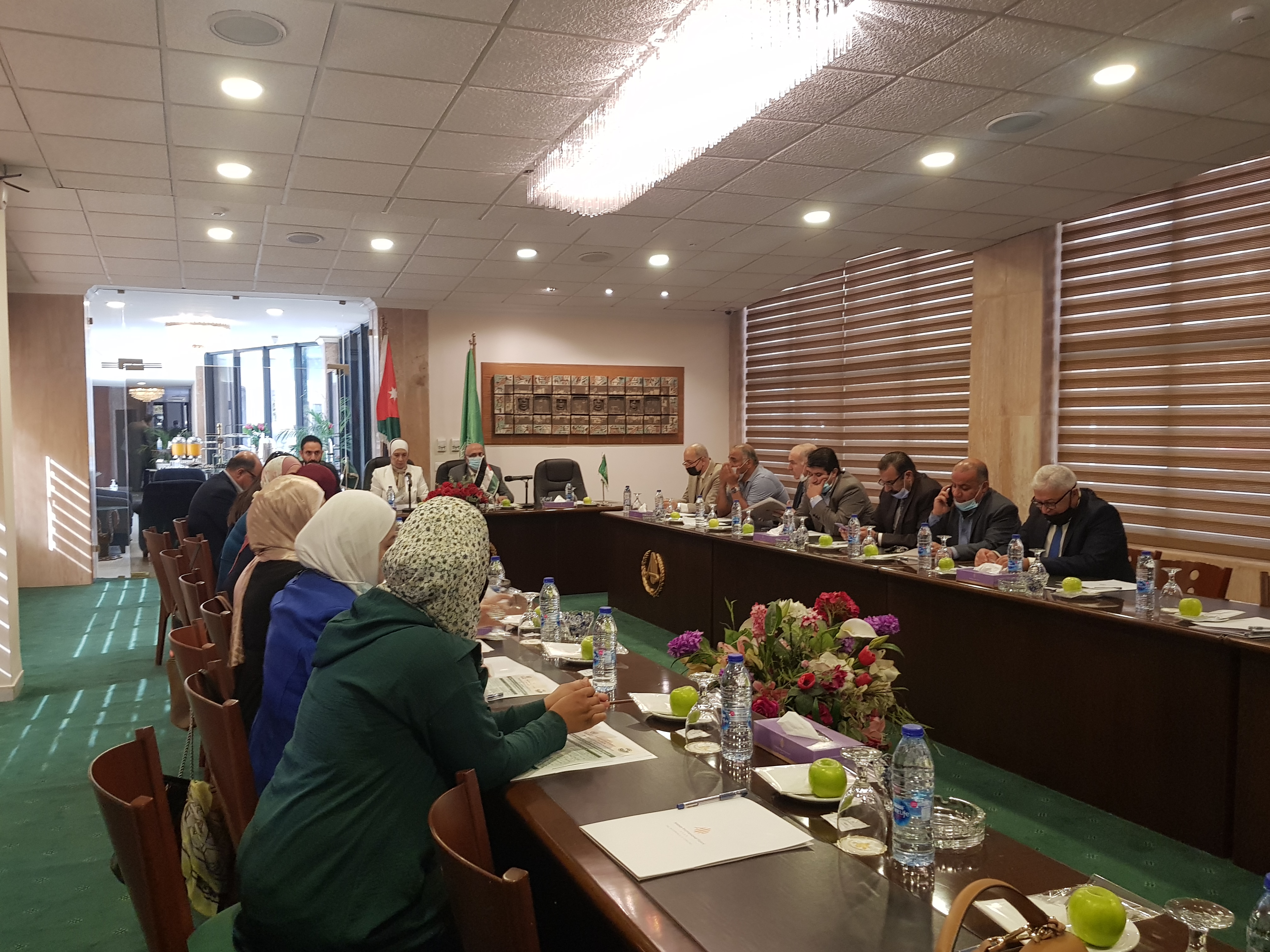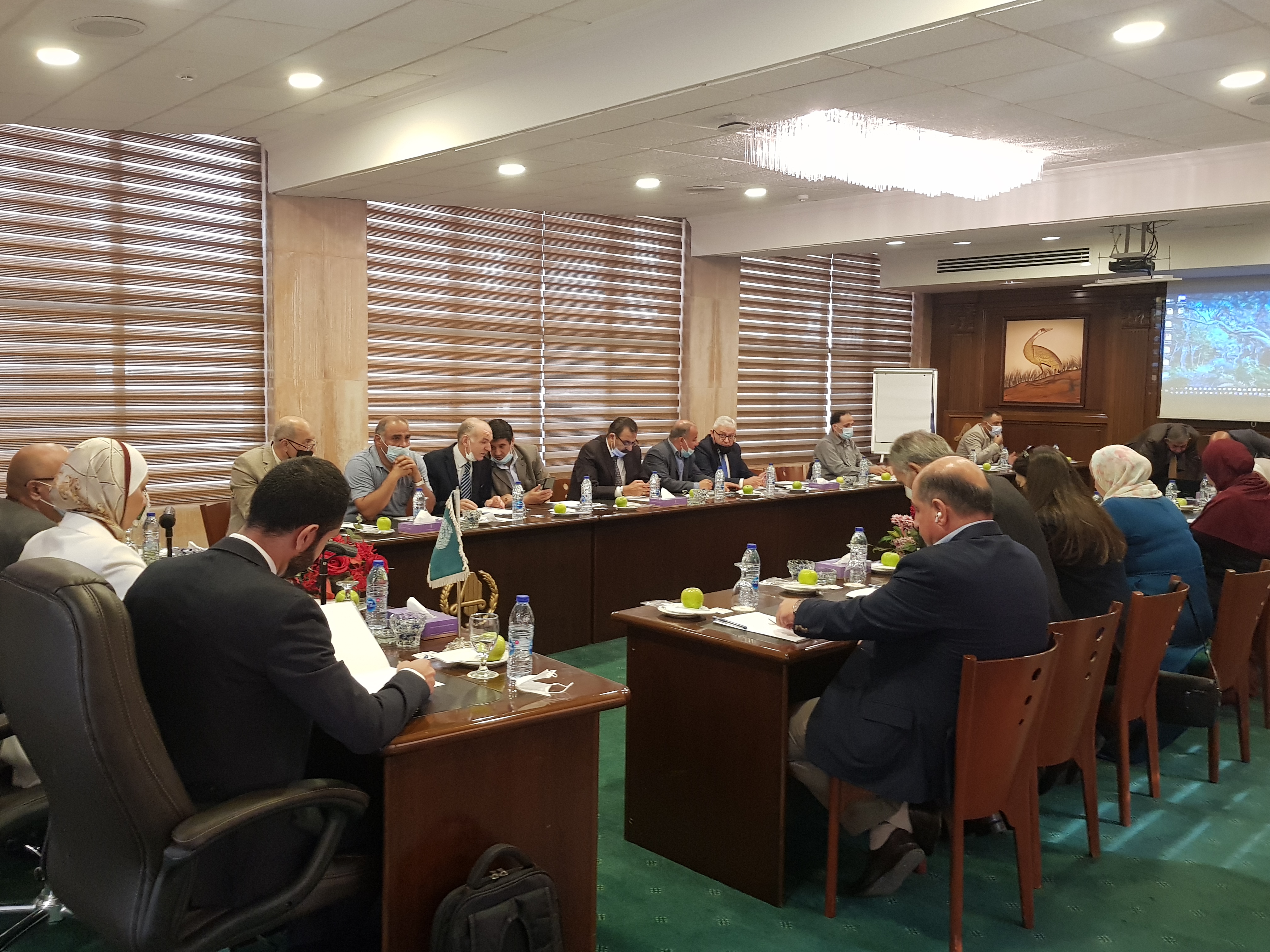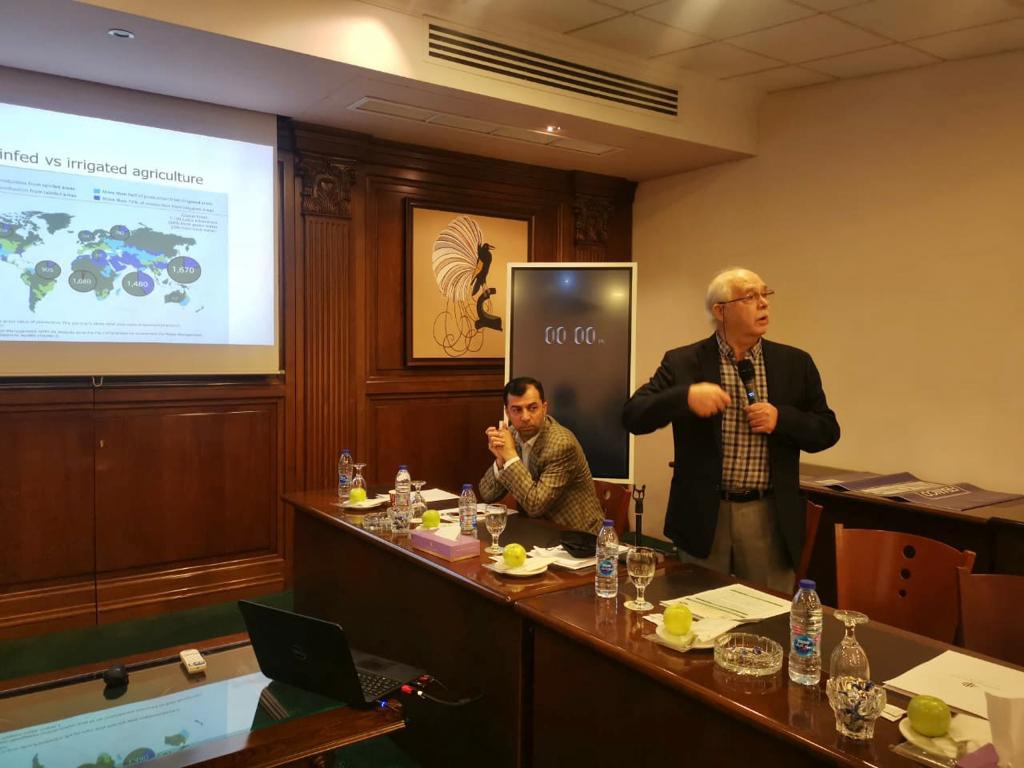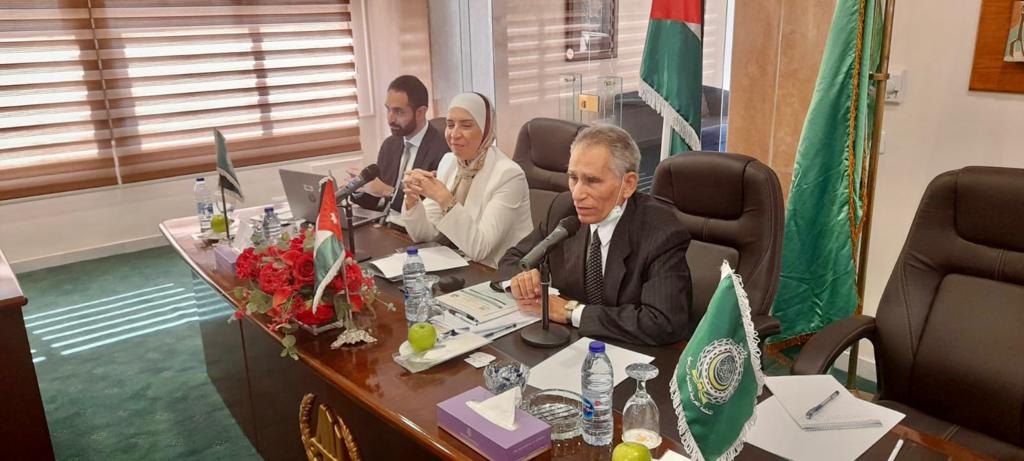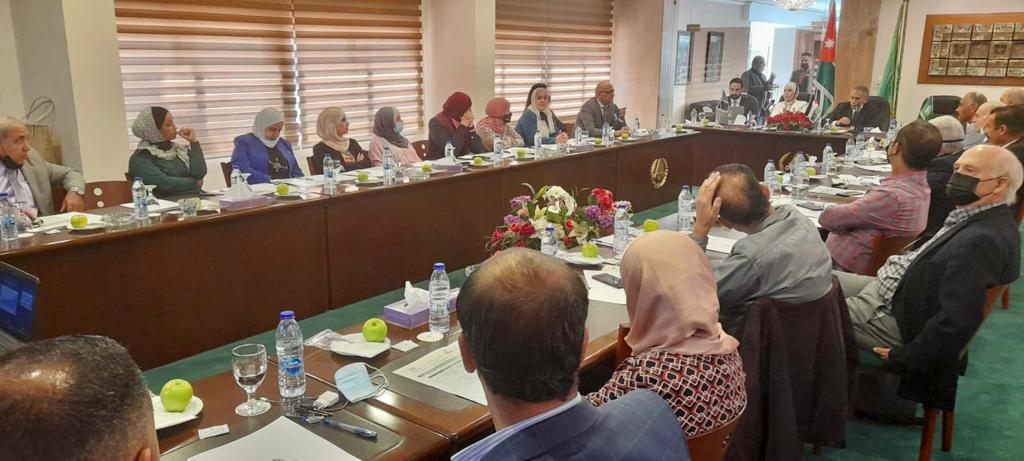The national consultation session aimed at identifying ways of enhancing the agricultural sector’s resilience and sustainability in Jordan in the face of climate change, the unsustainable use of natural resources and the COVID-19 pandemic. Main key messages that resulted from the consultation session included:
- Concerting efforts of all parties related to the agricultural sector, including ministries, institutions, and regional and international organizations, in order to support the sector and enhance agricultural production in Jordan in terms of quantity and quality.
- The necessity of cooperation between all concerned parties in the agricultural sector in Jordan from the public and private sectors to face the problems and obstacles that affect the enhancement of the sector’s resilience and sustainability, especially problems related to climate change, marketing and financing, and the availability of accurate and reliable information and statistics.
- The necessity to expand water harvesting projects to provide water for the agricultural sector and for supplementary irrigation by increasing the number of dams, hafairs and water collection wells, in addition to maintain and rehabilitating existing dams and hafairs.
- Developing and updating legislations that regulate the agricultural sector and encouraging cooperation with relevant authorities such as the Ministry of Water and the Ministry of Environment.
- The need to introduce modern agricultural technology andtechniques that help increasing productivity in quantity and quality in addition to using improved seeds resistant to drought, heat, diseases and various insects.
- The need to provide marketing information, and to encourage contract farming and regulate related laws, and the need to increase agricultural businesses, and to develop value chains in the agro-food sector including post-harvest handlings in a way to contribute to reducing crop losses
- The need to activate and support the role of agricultural extension, especially in training rural women to improve their production in quantity and quality.
- Improving financing policies and raising the capital of the financial institutions involved in the agricultural sector
- Activating investment laws and creating an attractive investment environment in light of the creation of a Ministry of Investment in Jordan.
- Working to reduce food waste in Arab countries in general, including Jordan, where traditional customs contribute to increasing the amount of wasted food.
- Activating cooperation between all partners, including the private sector
- The need to address addressing institutional reform policies given their direct and indirect impact on the agricultural sector
- The need to pay more attention to food security issues and their link to the scarcity of water and land resources, climatic changes and biodiversity
- The necessity of creating an insurance system to compensate workers in the agricultural sector against various risks.
- Enhancing intra-regional trade with Arab countries to help solve the obstacles they face in terms of customs procedures among other problems.
- The necessity of introducing and developing agricultural and environmental policies and strategies and the role of the institutional factor to ensure work sustainability.
- Working on developing the internal and external marketing environment by supporting the application of good agricultural practices and supporting farmers to achieve the relevant sustainable development goals.
- The need to pay more attention to empowering women and rural youth.
